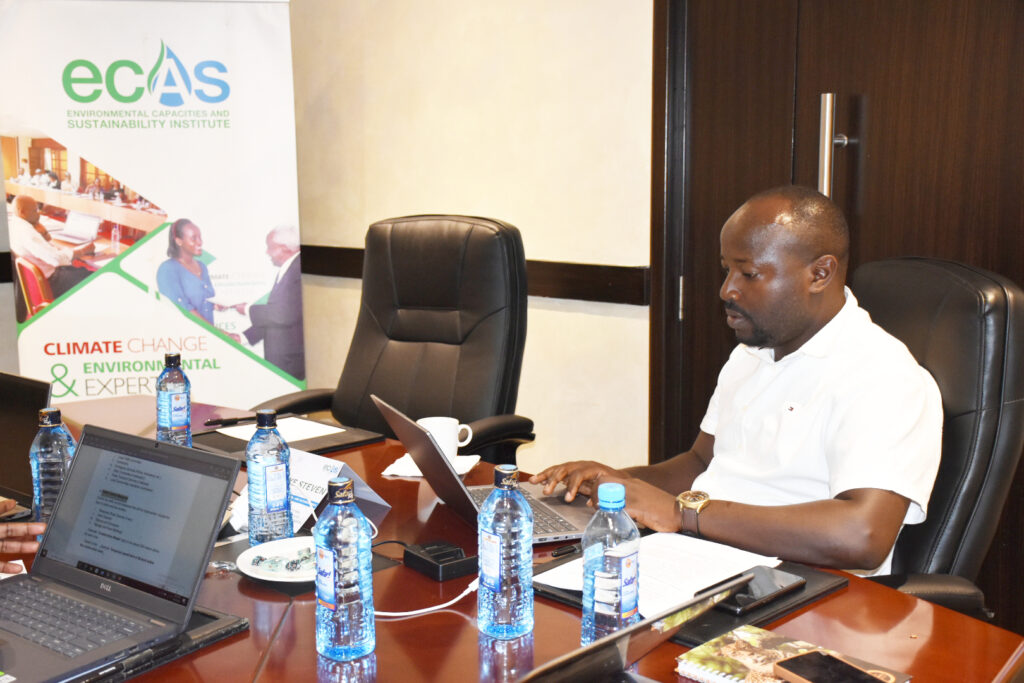
CONCEPT NOTE
INTERNATIONAL TRAINING ON AGRICULTURE IN REGIONAL TRADE AGREEMENTS
COURSE BACKGROUND
Regional Trade Agreements (RTAs) are reshaping the global trade landscape, with direct implications for agriculture. As nations enter into regional partnerships to enhance market access and reduce trade barriers, understanding the agricultural dimensions of RTAs becomes critical for effective policy formulation and strategic planning. This course by the Environmental Capacities and Sustainability Institute (ECAS) is designed to unpack the evolving dynamics of RTAs, providing insights into how their provisions compare to multilateral trade frameworks.
Participants will explore the motivations behind RTAs, the scope of their agricultural components, and the regulatory mechanisms they deploy. The course offers detailed analysis of key trade policy areas, such as tariffs, Tariff Rate Quotas (TRQs), sanitary and phytosanitary (SPS) standards, and technical barriers to trade (TBT). By examining current trends and comparing RTA provisions to those under World Trade Organization (WTO) agreements, learners will gain a nuanced understanding of agricultural trade governance at the regional level.
COURSE OBJECTIVES OF THE TRAINING
By the end of this course, participants will be able to:
- Explain the concept, trends, and motivations behind the formation of Regional Trade Agreements (RTAs).
- Identify the implications of RTA provisions for agricultural trade and policy.
- Compare RTA provisions with multilateral trade agreements, particularly those under the WTO.
- Analyze how RTAs manage key trade policy areas such as tariffs, TRQs, SPS, and TBT measures.
- Evaluate export-related provisions in RTAs, including export duties and rules of origin.
- Apply knowledge of RTA structures and policies to support trade negotiations, program development, and strategic planning in agriculture.
WHAT YOU WILL LEARN
By completing this course, participants will be equipped to:
- Understand the definition, objectives, and key trends of Regional Trade Agreements (RTAs).
- Compare and contrast RTA provisions with those of multilateral agreements, especially in the context of agricultural trade.
- Analyze how RTAs address market access issues such as tariffs, TRQs, SPS, and TBT measures.
- Interpret RTA regulations concerning export restrictions, export duties, and rules of origin.
- Evaluate the implications of RTAs for agricultural producers, policymakers, and trade negotiators.
DURATION AND PROGRAM
TARGET PARTICIPANTS
This course is intended for a broad audience of professionals and stakeholders involved in agricultural trade and policy-making. It is especially beneficial for government representatives from ministries of agriculture, trade, and economy who are engaged in trade negotiations or the development of trade-related policies and programs. The course is also valuable for private sector actors such as producer organizations and agro-industry professionals who need to navigate regional trade regulations. Academics and researchers focused on agricultural trade and policy analysis will also find the course enriching for both theoretical and applied perspectives.
TRAINING STYLE
The modules will be taught through PowerPoint presentations, and lectures and will include a case study/field visit, breakout sessions, case studies and other interactive discussion components.
The course will also include a few guest speakers, both in person and via Zoom and other online learning platforms for overseas speakers. This provides useful real-world insights alongside the more theoretical aspects of the course.
The conference faculty shall consist of experienced decision makers, as well as practitioners and representatives from established educational and research institutions active around climate change, engineering and international development. Throughout the course, theoretical presentation of concepts will be moderated and more group discussions and plenary engagements will be optimized. PowerPoint presentations will be made by facilitators and resource persons, to highlight key concepts before embarking on group work.
TRAINING MODULES
| No | Module | Details | |
| 1. | Trends in Regional Trade Agreements |
This module sets the context by outlining the global rise of RTAs, the political and economic motivations behind them, and their implications for agriculture. Participants will examine case studies of prominent RTAs and identify emerging patterns in trade governance.
The key topics include:
|
|
| 2. | Market Access and Regulatory Provisions in RTAs |
Focusing on the regulatory aspects, this module explores how RTAs address core agricultural trade areas such as tariffs, quotas, and technical measures. It includes practical comparisons with WTO rules and discusses the flexibility and stringency of RTA commitments.
The key topics include:
|
|
| 3. | Export Rules and Origin Requirements in RTAs |
This final module covers how RTAs govern export-related measures, including restrictions and duties. It also discusses rules of origin and their implications for agricultural products, especially in terms of compliance and certification requirements.
The key topics include:
|
|
GENERAL NOTES
- Training manuals and additional reference materials are provided to the participants.
- Upon successful completion of this course, participants will be issued with a certificate.
- We can also do this as a tailor-made course to meet organization-wide needs. Contact us to find out more: info@ecasiafrica.org.
- Payment should be sent to our bank account before the start of training and proof of payment sent to: info@ecasiafrica.org.
ABOUT ECAS INSTITUTE
The ECAS Institute designs and delivers independent and targeted training, research, and consulting services. Our work focusses on climate change and resilience building, carbon markets, renewable energy, nature-based solution, biodiversity conservation, agriculture and food systems, We are located in Nairobi Kenya and work across the African region. We have implemented training and research assignments in Kenya, Tanzania, Uganda, South Sudan, Somalia, Malawi, Rwanda, Congo, and South Africa. Globally, we have supported our partners from the UK, Denmark, Italy, Sweden, Germany, and USA.

